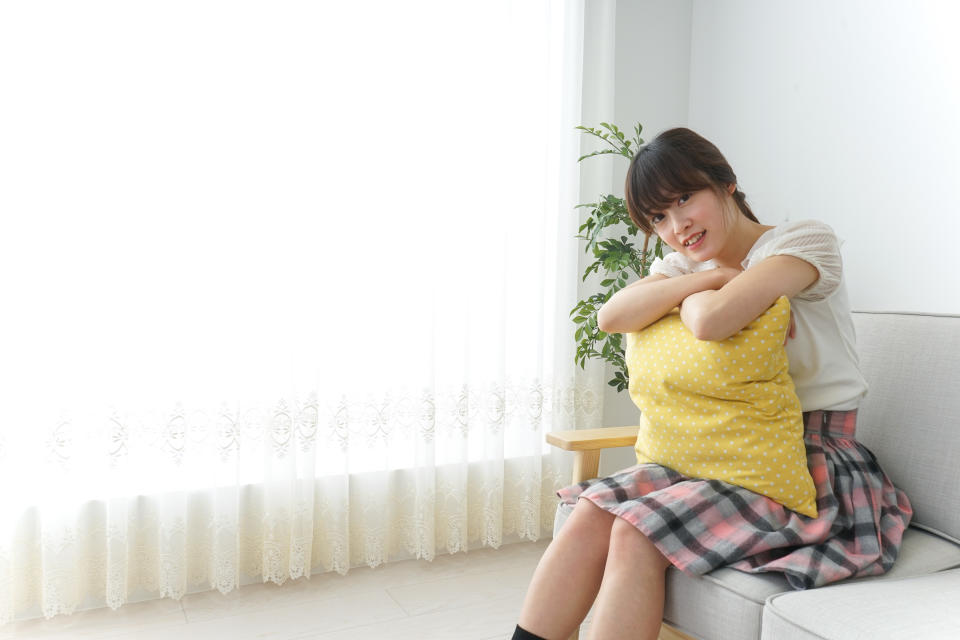Homebodies: Young Asians now prefer staying in, rather than going out

The whole ‘Netflix ‘n’ Chill’ phenomenon is not just about catching the latest must-see TV, it is a symptom of a new type of youth activity, the preference to stay home, rather than go out.
Young Asians are sticking at home, proudly claiming the title of ‘homebody’, deigning to hit the clubs, pubs and restaurants, preferring to order in everything from booze, groceries, fashion buys, entertainment and services like beauty and fitness.
In the United States recent research has shown that rather than just being a rumour, young people really are staying in. In the journal Joule, a report stated that Americans from 18 to 24 spend 70% more time at home than the rest of the population. That same study found that Americans in general are now spending eight more days at home compared to 2003. So it’s not just the younger generations that are staying in.
While there aren’t yet many statistics on the time Asians are spending at home, the general perception due to the increase in home delivery businesses and, of course, the proliferation of home entertainment and streaming platforms in Asia, points to a rise in homebodies.
And these self-proclaimed homebodies are perfectly happy about it.
“I think a homebody is someone who feels the most at peace and happy when they’re at home, in their sanctuary. I definitely see it as a positive [definition],” explains Lauren Alexa, who is in her ‘30s and married.
READ MORE:
Why are Asians scared of getting help for mental health issues?
Mental health: Letters to my 20-year-old self (part 2)
Mental health: Letters to my 20-year-old self (part 1)
Why talking is so important for our mental health
A post shared by daniel*boey (@danielboey) on
Daniel Boey proudly claims the title of ‘homebody’: [It is] someone who, by choice, is more comfortable spending time in the confines of their own home than to be out and about in social environments. As a self-professed homebody, it is definitely a positive term in my eyes.”
“[A homebody] is somebody who feels recharged when they spend time home as opposed to out. People just recharge and get their energy from different places,” says Freda Yuin, in her late ‘20s. Her husband, Dan Koh, agrees that staying at home is about recharging and relaxing: “... [home is] a refuge in which to be truly authentic”.
While everyone approached for this story agreed that being a homebody was a positive thing, one respondent noted that if you spend too much time at home, it could become a problem.
“[Being a homebody] is a positive thing if you are doing something like self care to get away from the crowds to have some me time... but it can also be negative if you don’t go out once in a while to socialise,” explains Stephanie Chua, a marketer in her 20s.
“There’s a fine line between self-care and becoming a recluse. I personally feel it’s very easy to cross that line if you are not careful.”
However the choice to stay at home is also linked to people’s personalities. Alexa says that she is an introvert. “I’m an introvert so my home is like my safe space, somewhere I can retreat to when the world gets too loud and overwhelming,” she explains.
Boey also pointed out that his work life consists of meeting lots of people in busy social settings, so home is a “quiet and secure environment which allows me to rest and recharge”.
The idea of home being a place to ‘recharge’ is a popular one. Many people define their homes as the place they escape to to recover from a busy work life, or the stress that comes from living in a busy city in Asia.
A post shared by Freda (@fredayuin) on
“I feel energised when I am home without commitments and obligations just to spend some time with myself and my family at my most comfortable. It is at home that I am also out of the public eye and don't have to worry about judgement,” explains Yuin.
Her husband laughingly agrees: “I need the headspace to think of witty comebacks to disagreements I've encountered during the week (most, if not all, of which are usually resolved and forgotten).”
So what are all these homebodies doing at home rather than going out?
For the majority of Asia’s young homebodies they’re doing exactly what all of us do when we have a bit of extra time at home - being entertained or entertaining others.
“The activities I most enjoy like cooking, entertaining, reading, watching TV, are all largely best done inside one’s own home,” explains Islean Valath, a designer in her early 30s, about why she prefers to stay home rather than go out.
Chua admits that there are so many things she likes doing at home, that she’s never bored or lonely: “Read my books, play my PS4, nap, spend time with my cat, meditate, do yoga, try out a new recipe... there are tonnes to do.”
Netflix came up a number of times when people were asked about what they love to do at home, so did spending time with spouses and pets, as well as just “chilling” as Alexa says.
Don’t worry, though, these homebodies will leave their homes for some things.
Obviously everyone has to leave home to go to work, but most of our homebodies will also leave for family activities, walking their dogs and meeting up for special occasions.

“I have no issues leaving home for anything, be it work, or meeting friends or family, or running errands, but I look forward to going home and unwinding and just getting comfy,” says Alexa. “My husband’s Danish and I’ve really come to love the whole concept of hygge, just having a cosy time at home.”
Still, all these Asian homebodies believe that they will always prefer to stay home rather than to go out.
“I think I’ll probably lean into it more as I get older, to be honest,” jokes Alexa. Valath says she will always be a homebody too.
“This is my house and I designed it to be comfortable. If you can’t enjoy your own house, you might as well sell it off and live in hotels,” says Chua, stating she will always be a homebody.
Brian William Forst says that he has done all his partying, and now thinks he will always be a hardcore Homebody.
“I got my let’s-party-all-night out of my system in my 20s and early 30s. Things change; you get a good night’s sleep, wake up early, do yoga, take time drinking your coffee, and watch the sun come up - it’s better than partying until the sun comes up. If I’m up all night now, I want to be at home painting and drawing in my own world.”
As Boey says: “My home is my cocoon, my comfort space, my security. Nothing makes me happier than spending time alone at home with my dog.”
It seems that living life at home in Asia is now super convenient, calming and comfortable. Who needs to ever leave?


